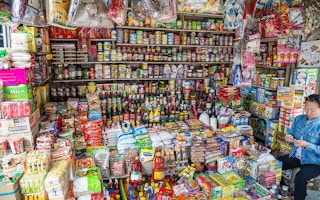Scientists are developing an edible form of packaging which they hope will preserve food more effectively and more sustainably than plastic film, helping to cut both food and plastic waste.
The packaging film is made of a milk protein called casein, scientists from the U.S. Department of Agriculture said at a meeting of the American Chemical Society.
The milk-based packaging does not currently have much taste, but flavours could be added to it, as could vitamins, probiotics and other nutrients to make it nutritious, they said.
The film looks similar to plastic wrapping, but is up to 500 times better at protecting food from oxygen, as well as being biodegradable and sustainable, the researchers said at the meeting in Pennsylvania, which runs until Thursday.
“The protein-based films are powerful oxygen blockers that help prevent food spoilage. When used in packaging, they could prevent food waste during distribution along the food chain,” research leader Peggy Tomasula said in a statement on Sunday.
Between 30 and 40 per cent of food produced around the world is never eaten because it spoils at some time after harvest or during transport, or gets thrown away by shops and consumers.
“
The protein-based films are powerful oxygen blockers that help prevent food spoilage. When used in packaging, they could prevent food waste during distribution along the food chain.
Peggy Tomasula, research leader for edible packaging, U.S. Department of Agriculture
Yet almost 800 million people worldwide go to bed hungry every night, according to U.N. figures.
Halving food waste by 2030 was included as a target in global development goals adopted by world leaders in 2015.
The U.S. scientists also want to reduce the amount of plastic that is thrown away.
“We are currently testing applications such as single-serve, edible food wrappers. For instance, individually wrapped cheese sticks use a large proportion of plastic - we would like to fix that,” said Laetitia Bonnaillie, co-leader of the study.
Single-serve pouches of cheese would still have to be encased in a larger plastic or cardboard container for sale on store shelves to prevent them from getting wet or dirty.
Edible packaging made of starch is already on the market, but it is relatively porous and does not block oxygen from reaching the food as effectively.
Bonnaillie said she hopes the milk protein packaging will be on store shelves within three years.
This story was published with permission from Thomson Reuters Foundation, the charitable arm of Thomson Reuters, that covers humanitarian news, women’s rights, trafficking, corruption and climate change. Visit http://news.trust.org










